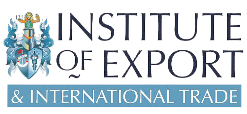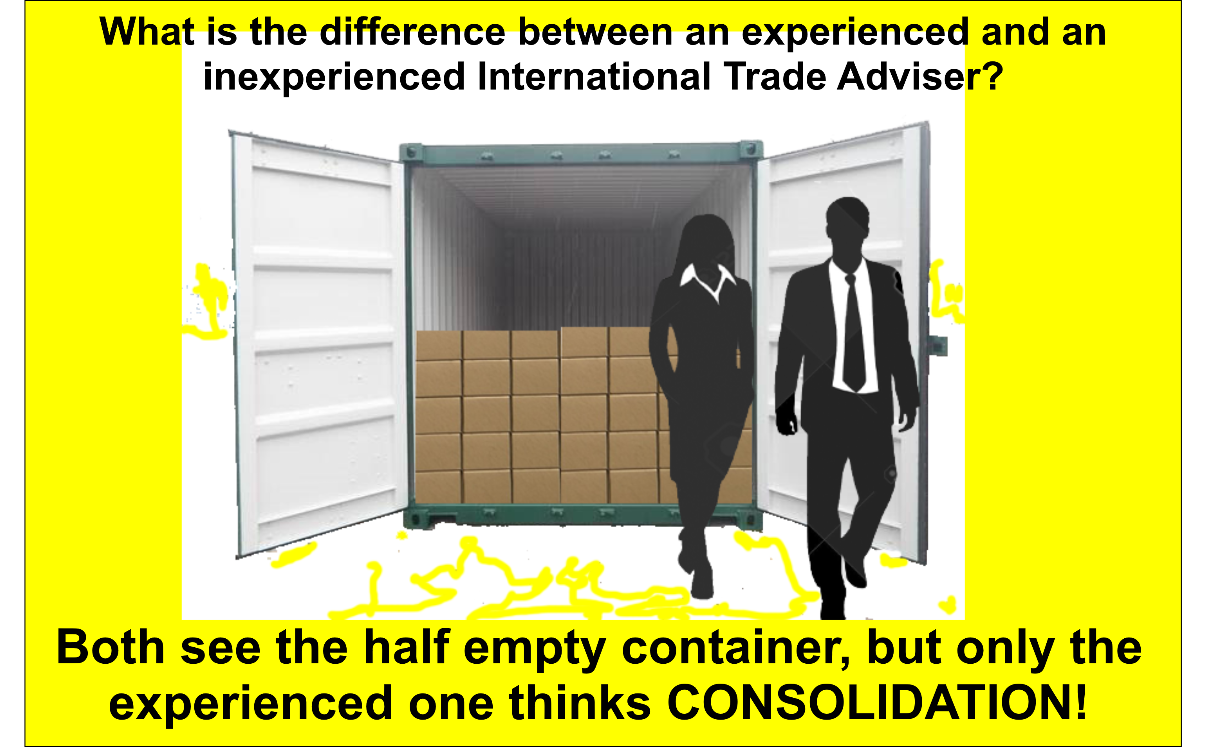
International Trade Expert and Consultant
Author, Exporter and patriot
Gerry Bratley MIEx





Web content and design by G Bratley MIEx © 2020
International Trade Advisors and Consultants are not born, they are moulded and trained over years of education and practice. Practice makes perfect. An advisor, needs both to know his/her clients business in minute detail and have all the skills to be able to:-
- Help create the export plan assisting with the research assessments and SWOT analysis.
- Research and identify the best market(s) for each and every product
- Effectively approach the market
- Advise on business culture
- Identify the extra costs involved in internationalisation of the clients products/services.
- Identify most cost effective way of packing and shipping.
- How to arrange shipment and marine insurance
- How to set payment terms to best suit the products and customer, but still mitigate risk.
- To be able to talk through all the transport and payment documentation required and to be able to raise the documentation and arrange any outside certification
- To be competant to be able to explain and raise the different Bills of Exchange (Drafts) to cover the numerous variables in use:-
cash against acceptance (Time/Usance), cash against documents, (Sight), L/C’s and other documentary collections. - The best way to ship -
containerisation/consolidation/break bulk - Licenses and customs declarations
- Etc.etc.
These skills and the associated expertise can only be gained over a number of years making those same decisions on a daily basis. These skills are long lasting and are consistent because most are formalised under international conventions and agreements, and change very slowly or not at all. E.g. Bills of Exchange are still written using 18th century banking terminology
All other ‘claimed skills’ such as sector or market specialisation are only usually relevent if it is very recent knowledge, because governments change, people move on and things can change with alacrity. I personally have been to Iraq 15 times, Hong Kong 50+, Malaysia 60+, Taiwan 20+, Singapore 20+, Australia 16, but none of them on business in the last 5 years, so almost all my contacts will have moved on.
Then there are those on the periphery of International Trade, Those issuing the certificates in the Chambers of Commerce, The Civil Servants in the DIT, or its other incarnations UKTI, DTI etc. or Diplomats in a High Commission or Embassy abroad. -
Civil Servants & Diplomats, They usually don’t see the contracts or commercial documentation, the diplomats are posted on 3 year tours of duty and each post has a team of permanent local staff in the commercial section dealing with local businesses and enquiries from the UK.
The diplomats manage the department, they pick up a brief when they arrive and then spend most of their time briefing and debriefing visiting trade missions, parliamentary committees, civil servants and government ministers. In 3 years they will absorb some of the culture, so what they can contribute is quite minimal.
Civil Servants are involved in Trade policy and do not get near enough the commercial action to have anything other than a peripheral view.
CONCLUSION
Any ‘Advisor’ or ‘Consultant’ worth the title, will have spent many years (min 5 years+) learning and honing their skills in a commercial export environment
